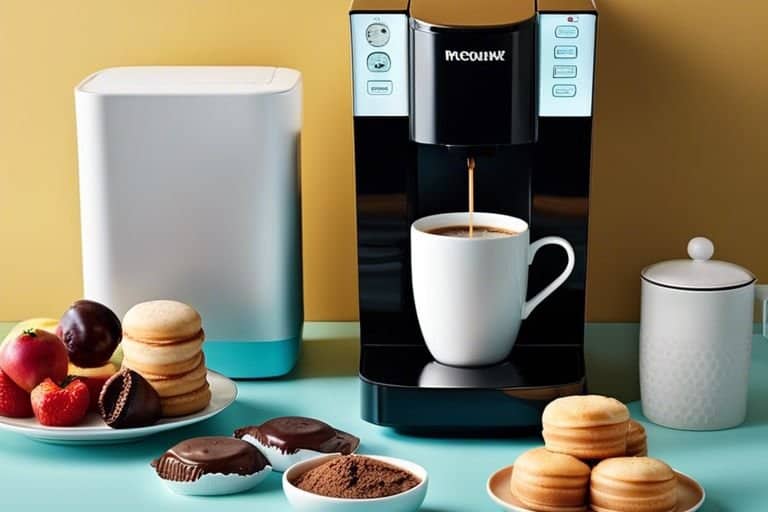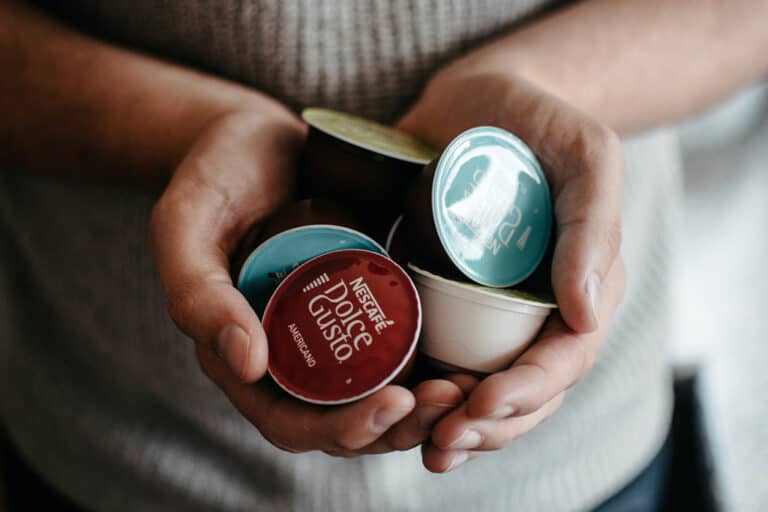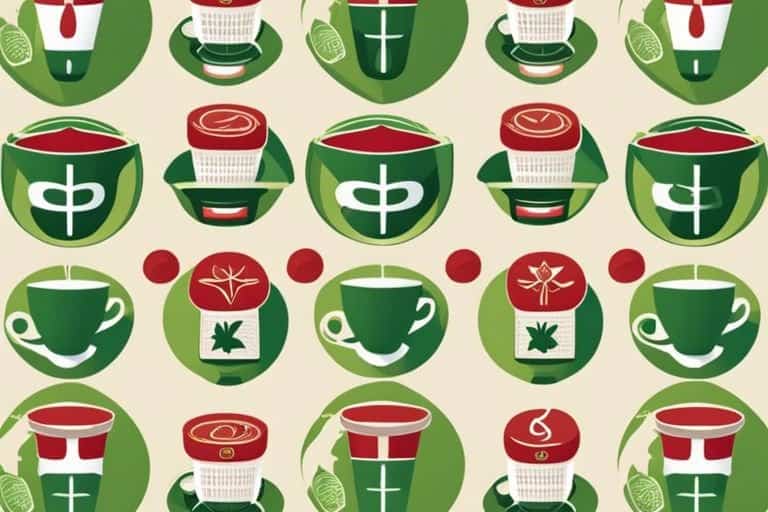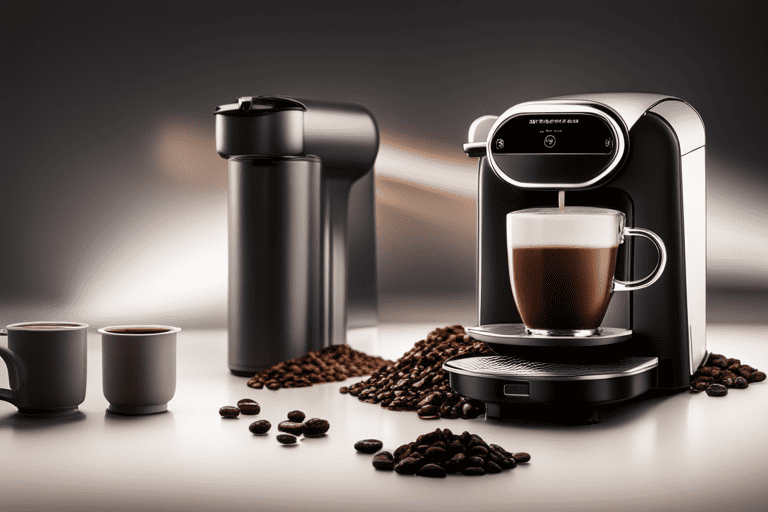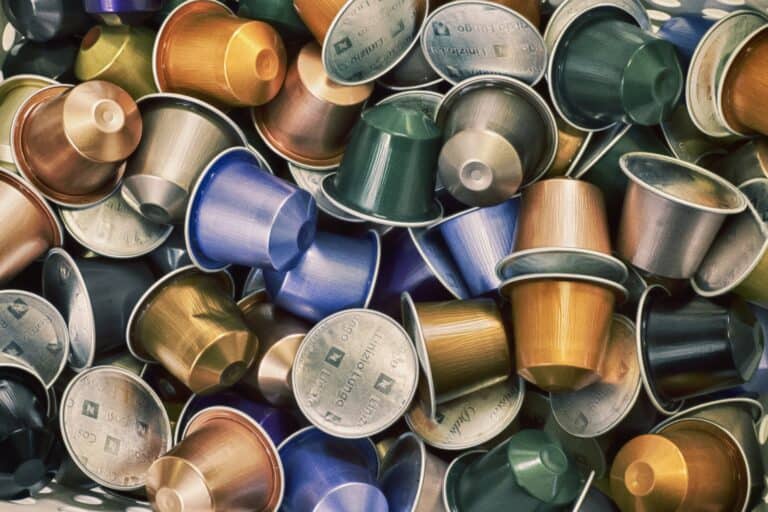K-Cup Coffee Maker vs Traditional Coffee Maker – Which is Better?
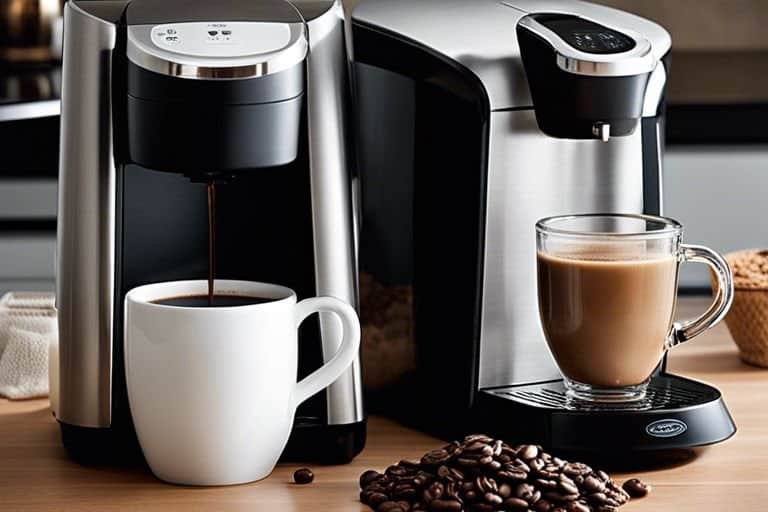
Behold, the age-old debate: K-Cup coffee maker or traditional coffee maker? As a coffee enthusiast, I’ve conducted extensive research and testing to determine which brewing method reigns supreme.
One of the key differences lies in the convenience factor – K-Cup machines offer a quick and easy way to make a single cup of coffee, while traditional coffee makers require more effort but can produce a larger quantity. However, when it comes to environmental impact and cost, the choice becomes more complex. Join me as we delve into the details and compare these two popular coffee brewing methods to find out which one is truly better.
K-Cup Coffee Maker
Your morning routine wouldn’t be complete without a steaming cup of delicious coffee. But with so many brewing options available, it can be challenging to decide which coffee maker is best for you. In this post, I will compare the K-Cup coffee maker and the traditional coffee maker to help you make an informed decision.
Technology and Convenience of K-Cup Coffee Makers
When it comes to convenience, K-Cup coffee makers take the prize. With just the press of a button, you can have a piping hot cup of coffee ready in less than a minute. The technology behind K-Cup machines allows for single-serve brewing, meaning you can have a fresh cup of coffee every time, without the need to measure, grind, or brew.
Variety and Quality of K-Cup Coffee Options
One of the most significant advantages of using a K-Cup coffee maker is the vast variety of coffee options available. With hundreds of flavors and brands to choose from, you can enjoy a different coffee experience every day. Additionally, K-Cups are designed to preserve the freshness and quality of the coffee, ensuring a consistently flavorful and aromatic cup every time.
Environmental Impact of K-Cups
While K-Cup coffee makers offer convenience and variety, it’s essential to consider the environmental impact of using single-serve pods. The convenience of K-Cups comes at a cost; these pods are not biodegradable and contribute to environmental waste. It’s important to consider the environmental impact of your coffee brewing method and explore eco-friendly alternatives.
Cost Analysis of Using K-Cup Coffee Makers
Although the initial investment in a K-Cup coffee maker may be higher than a traditional coffee maker, the cost analysis over time may surprise you. While K-Cup pods are generally more expensive per cup than traditional ground coffee, they can also save you money by reducing wasted coffee and eliminating the need for additional coffee accessories such as filters and grinders.
Maintenance and Cleaning of K-Cup Machines
Maintaining and cleaning a K-Cup coffee maker is relatively simple. Regular maintenance involves descaling the machine to remove mineral deposits and regularly cleaning the brewer assembly and K-Cup holder to ensure optimal performance and taste. The convenience of single-serve brewing comes with the added responsibility of maintaining and cleaning the machine to ensure longevity and quality coffee.
With the technology and convenience, variety and quality, environmental impact, cost analysis, and maintenance and cleaning considerations, K-Cup coffee makers offer a convenient and customizable coffee brewing experience. However, it’s essential to weigh the pros and cons before making a decision.Traditional Coffee Maker
However, before we delve into the world of K-Cup coffee makers, let’s explore the traditional coffee maker. If you want to learn more about the differences between the two, you can check out this Keurig vs Traditional Coffee Maker: What’s the Difference? article.
The Classic Approach to Brewing Coffee
Using a traditional coffee maker involves a classic approach to brewing your favorite cup of joe. From grinding the coffee beans to adding the measured amount of grounds, the process is a labor of love and patience. It allows you to control every step of the brewing process, resulting in a rich and aromatic cup of coffee.
Diversity of Coffee Making Techniques
Traditional coffee makers offer a diversity of coffee making techniques, from drip brewing to French press and percolator brewing. Each method produces unique flavors and textures, giving you the opportunity to experiment and find your perfect cup of coffee.
Taste and Customizability Factors
The traditional coffee maker provides full control over the brewing process, allowing you to adjust factors such as grind size and water temperature to achieve your desired taste. You can also customize your coffee by adding flavorings or spices directly to the grounds. The result is a customized and authentic coffee experience.
Cost-Effectiveness of Traditional Brewing
Despite the initial investment in a quality traditional coffee maker, the cost-effectiveness of using this method is evident in the long run. Buying whole coffee beans and grinding them as needed can be more economical than purchasing pre-packaged K-Cups.
Environmental Considerations for Conventional Methods
When it comes to environmental impact, traditional coffee brewing is often considered more sustainable than single-use K-Cups. By using a reusable filter and composting coffee grounds, you can minimize the environmental footprint of your coffee consumption.

Comparative Analysis
Now, let’s dive into a comparative analysis of K-Cup coffee makers versus traditional coffee makers. Below, I’ve broken down various factors into a table with two columns, detailing the strengths and weaknesses of each type of coffee maker.
Taste and Flavor Profiles: K-Cup vs Traditional
When it comes to taste and flavor, both K-Cup and traditional coffee makers have their pros and cons. K-Cups are a convenient option for quickly brewing a single cup of coffee, but some coffee enthusiasts argue that they compromise on the quality and flavor of the coffee. On the other hand, traditional coffee makers allow for more control over the brewing process, resulting in a richer and more robust flavor profile. However, this also depends on the quality of the coffee grounds used.
Long-Term Costs: Upfront Investment and Running Expenses
Considering long-term costs, it’s important to note that K-Cup coffee makers may have a higher upfront investment due to the initial cost of the machine and ongoing purchases of K-Cups. While traditional coffee makers may have a lower initial cost, the expense of purchasing coffee beans or grounds can add up over time. Additionally, the maintenance and replacement of parts may contribute to the overall cost.
Convenience and Time: Assessing Brewing Efficiency
When it comes to convenience and time, K-Cup coffee makers have the upper hand. They offer a quick and hassle-free brewing process, perfect for those on-the-go mornings. However, traditional coffee makers require more time and effort for preparation and brewing. This makes them ideal for those who enjoy the process of making coffee and are willing to invest the time for a more customized brew.
Durability and Longevity: Comparing Appliance Lifespans
When it comes to durability and longevity, traditional coffee makers have the advantage. With fewer electronic components and a simpler design, they tend to have a longer lifespan. On the other hand, K-Cup coffee makers may be prone to malfunctions and wear and tear over time, requiring more frequent maintenance and replacement.
Environmental Impact: Waste and Sustainability
Considering the environmental impact, it’s crucial to acknowledge that K-Cup coffee makers generate more waste due to the single-use nature of K-Cups. This can contribute to environmental concerns related to plastic waste. Conversely, traditional coffee makers, when used with sustainable and biodegradable coffee filters, may have a lower environmental impact.
Conclusion: K-Cup Coffee Maker vs Traditional Coffee Maker – Which is Better?
Ultimately, the decision between a K-Cup coffee maker and a traditional coffee maker comes down to personal preference and convenience. If you value speed and convenience, the K-Cup coffee maker may be the better option for you. However, if you prefer a more customizable brewing process and want to save money in the long run, a traditional coffee maker may be the better choice. Consider your brewing habits, taste preferences, and lifestyle when making your decision, and choose the coffee maker that best suits your needs.

